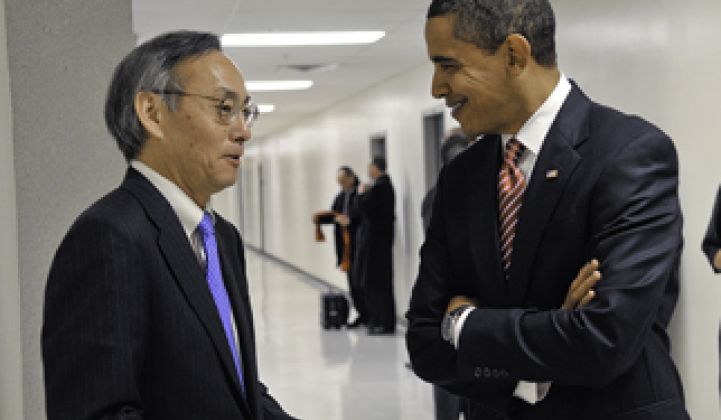Can the U.S. compete with China when it comes to manufacturing?
Can the U.S. even compete when it comes to intellectual property and engineering? Four years ago, it might have been heresy to think that emerging nations could compete with the West in R&D. But large companies like Applied Materials and startups like NuvoSun now perform substantial portions of their green technology research in China. Tsinghua University wants to develop a modular nuclear reactor, similar to those being developed in the U.S. by Babcock & Wilcox and the national labs.
An even more outlandish idea: Can the U.S. and China cooperate? A few months ago, that also seemed somewhat inconceivable. But China does not have much of a history in energy efficiency and demand response. To help fill that gap, companies like Johnson Controls and Honeywell recently signed initiatives to bring technology for fine-tuning power consumption to China.
Green technology and jobs will be the focus of the Berkeley-Stanford Cleantech Conference taking place this Friday and Saturday. The conference starts off with a green technology showcase and business plan competition on the Stanford campus on Friday. On Saturday, Energy Secretary and Scientist in Chief Steve Chu (who worked at both Stanford and Berkeley before going to Washington) will headline a series of talks and panels at the PG&E auditorium. Other speakers include Chris Johns (PG&E President), Dan Reicher, Jason Wolf from Better Place, and solar guru Charlie Gay from Applied Materials. (Disclosure: I'm moderating a panel as well.)
The jobs question is perhaps the most important issue, and best opportunity, for the renewables industry today. Green technology advocates now regularly downplay climate change because large segments of the U.S. population adamantly refuse to accept the science behind it. National security has been a tough sell, too: Most people understand that much of our oil comes from nations sometimes hostile to the U.S. -- but it doesn't curb their driving. Thus, support for cleantech boils down to economic opportunity: the assertion that we can make money off this and replace the jobs that got outsourced over the past decade.
It is also one of the more divisive issues. Some, like 1366 Technologies CEO Frank van Mierlo, say that companies can still economically manufacture cutting-edge products in the U.S. In fact, some even assert that they need to: outsourcing production can erode a company's R&D capabilities over time. SunPower founder Dick Swanson maintains that solar module makers could return to the U.S. but for that pesky corporate income tax.
Others, meanwhile, argue that 'Buy American' restrictions and incentives for manufacturing are expensive subsidies that only delay the inevitable.
It should prove to be an interesting discussion.



